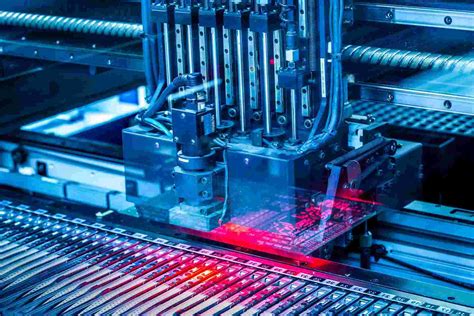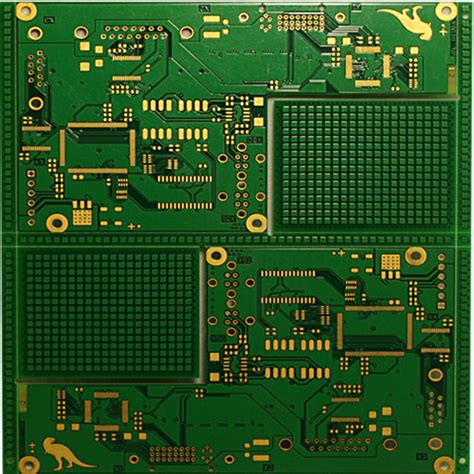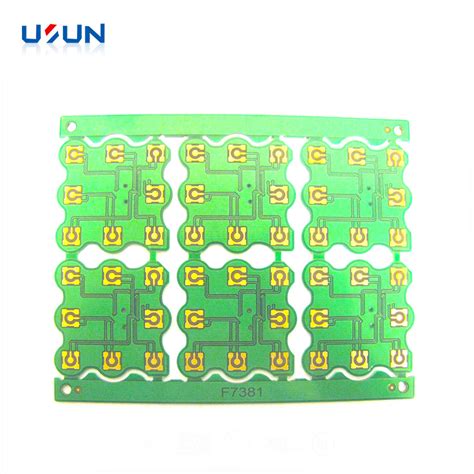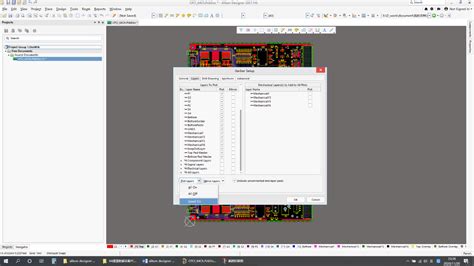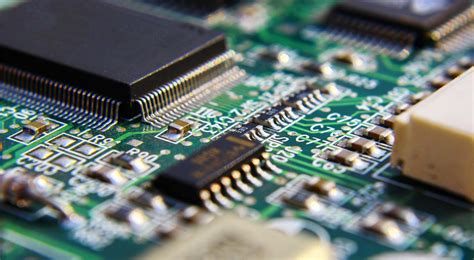Revolutionizing Electronics: The Future of Fast Turn Circuit Board Manufacturing
Key Takeaways
Fast turn circuit board manufacturing has emerged as a game-changer in the electronics industry, transforming how products are developed and brought to market. By incorporating cutting-edge techniques and advanced technologies, PCB manufacturing companies can significantly reduce lead times, which in turn helps you meet the rapidly evolving demands of modern electronic markets. You can enjoy enhanced flexibility and precision, resulting in quicker prototyping cycles and the ability to scale up to high-volume production efficiently. This approach not only lowers PCB manufacturing cost but also ensures strict adherence to high-quality standards, making it easier for your business to remain competitive. As a key player in the PCB manufacturing business, leveraging these advancements is essential for delivering exceptional products in record time and driving innovation forward within the electronics sector.
Introduction to Fast Turn Circuit Board Manufacturing
In the rapidly evolving world of electronics, fast turn circuit board manufacturing is a game-changer that has redefined the way pcb manufacturing companies operate. This innovative approach to pcb manufacturing dramatically reduces lead times, allowing you to bring your products to market faster than ever. By leveraging cutting-edge technologies and streamlined processes, you can achieve greater flexibility and efficiency in your production cycles. For businesses looking to stay competitive, minimizing the pcb manufacturing cost is crucial, and fast turn approaches offer significant savings by optimizing resources and minimizing downtime.
The demand for quick prototyping and high-volume production means that modern electronics markets require agile and responsive solutions. By adopting fast turn methods, your pcb manufacturing business can meet these demands with ease, ensuring high-quality standards are maintained throughout the production process. This not only enhances customer satisfaction but also positions your company as a leader in technological innovation. To learn more about how top manufacturers are revolutionizing electronics through fast turn PCB manufacturing, visit Andwin PCB Assembly.
Technological Advancements in Rapid PCB Production
As the demand for electronic devices skyrockets, PCB manufacturing has seen incredible advancements aimed at accelerating production speed without compromising quality. One of the most significant innovations is the adoption of automated processes and machinery, which allows PCB manufacturing companies to achieve remarkable precision and efficiency. Robotic arms and high-speed machines are capable of handling intricate tasks that were once manually intensive, thereby reducing pcb manufacturing cost.
Another crucial development is the use of advanced materials and multilayer technologies. These innovations enable the creation of smaller, more powerful circuit boards that are essential for modern electronics. High-frequency laminates and flexible substrates have also become more prevalent, offering increased durability and performance.
“By integrating automated processes with advanced materials, leading PCB manufacturing companies are setting new standards in speed, reliability, and cost-effectiveness.”
Moreover, cutting-edge software tools have revolutionized the design-to-production pipeline. These tools facilitate real-time simulation and testing, enabling rapid iteration and refinement. By shortening the design phase, they contribute significantly to faster turnaround times.
The advent of 3D printing technology has further transformed pcb manufacturing business. 3D printing allows for quick prototyping, making it easier to test new designs before committing to full-scale production. This capability greatly reduces lead times and lowers pcb manufacturing cost by minimizing errors early in the design process.
Overall, these technological advancements have not only made rapid PCB production more feasible but also more attainable for businesses across various industries. The continual innovation in this field ensures that your PCB requirements can be met swiftly without sacrificing quality or increasing costs excessively.
Reducing Lead Times: Strategies and Benefits
Reducing lead times in pcb manufacturing is crucial for staying competitive in the fast-paced electronics market. PCB manufacturing companies are adopting innovative strategies to minimize production cycles, such as advanced automation, just-in-time inventory management, and sophisticated scheduling algorithms. These approaches not only expedite the manufacturing process but also help in anticipating and responding to market demands swiftly. Additionally, reducing pcb manufacturing cost through efficient processes enables businesses to offer competitive pricing while maintaining excellent quality standards. By employing these techniques, PCB manufacturing businesses can achieve quicker turnaround times, thereby enhancing customer satisfaction and driving growth in a highly dynamic industry.
Enhancing Flexibility in PCB Manufacturing
In the rapidly evolving world of pcb manufacturing, flexibility is paramount. The ability to adapt quickly to design changes and market demands can significantly influence the success of pcb manufacturing companies. One of the key drivers behind this adaptability is the integration of advanced technologies such as automated machinery and sophisticated design software. These tools allow for quicker adjustments, ensuring that your projects remain on track despite any unforeseen modifications.
Moreover, incorporating modular design principles into your pcb manufacturing business enables you to create versatile circuit boards that can be easily modified or expanded. This not only reduces overall lead times but also minimizes pcb manufacturing cost by decreasing the need for complete overhauls or new designs from scratch. As a result, you can respond more efficiently to customer demands, deliver products faster, and maintain an edge over competitors.
By embracing these innovative strategies, you can enhance production agility while ensuring that quality and reliability are never compromised. Leveraging these advancements in flexibility helps position your organization as a leader in the fast-paced electronics sector. With continuous improvements and a commitment to excellence, you can meet the dynamic needs of modern market landscapes effectively.
Ensuring High-Quality Standards in Fast Turn Manufacturing
Ensuring high-quality standards in fast turn pcb manufacturing is crucial for maintaining the integrity and reliability of electronic products. To achieve this, pcb manufacturing companies implement stringent quality control measures at every stage of the production process. From the selection of raw materials to the final inspection, every aspect is meticulously monitored to meet industry standards. Advanced testing methods, such as Automated Optical Inspection (AOI) and X-ray inspection, play a significant role in identifying and rectifying defects early on. This proactive approach not only minimizes pcb manufacturing cost but also enhances the overall efficiency and performance of the production line. Additionally, manufacturers leverage comprehensive data analytics to track production trends and implement necessary adjustments in real time, ensuring consistent quality output. By maintaining high standards, pcb manufacturing businesses can deliver reliable products swiftly, meeting the rapid demands of the electronics market without compromising on quality.
Innovative Prototyping Techniques and Tools
In the realm of pcb manufacturing, innovative prototyping techniques and tools are pivotal for reducing pcb manufacturing cost and improving efficiency. With advanced software and automated machinery, you can translate designs into physical prototypes swiftly, which is essential for keeping pace with the rapid development cycles of today’s electronics industry. PCB manufacturing companies are leveraging 3D printing, precision CNC machining, and advanced photolithography to create highly accurate and detailed circuits. These technologies not only expedite the prototyping phase but also ensure that initial designs are scalable for mass production without significant alterations, thus minimizing the overall pcb manufacturing cost.
An effective way to understand this impact is through a comparative table showcasing traditional versus innovative techniques:
| Technique | Traditional PCB Prototyping | Innovative PCB Prototyping |
|---|---|---|
| Speed | Slow | Fast |
| Accuracy | Moderate | High |
| Flexibility | Low | High |
| Initial Setup Costs | High | Moderate |
These advancements mean that your pcb manufacturing business can produce multiple iterations quickly, testing various configurations without extensive downtime. This flexibility allows for rapid refinement of designs based on performance data, ensuring that the final product meets stringent quality standards. As a result, embracing these cutting-edge prototyping methods enables you to remain competitive in a market that demands both speed and precision.
Scaling Up: From Prototyping to High-Volume Production
Scaling up from prototyping to high-volume production in pcb manufacturing requires a strategic approach and the utilization of advanced methodologies. In fast turn pcb manufacturing, the transition from a prototype to mass production involves an understanding of unique project requirements and a meticulous planning phase. Prototyping is crucial for testing and refining designs, but as you move towards higher volumes, efficiency becomes paramount. PCB manufacturing companies are leveraging automation and sophisticated software tools to streamline processes, ensuring that scaling does not compromise quality or lead times.
Ensuring high-quality standards during this scale-up phase is essential. This often involves rigorous testing and quality control measures that are scalable themselves. Effective supply chain management also plays a pivotal role—having reliable suppliers can significantly reduce the pcb manufacturing cost and ensure continuity in production. Furthermore, adaptability in the design phase can reduce potential bottlenecks when moving to mass production.
For any pcb manufacturing business, maintaining flexibility while scaling up is a competitive advantage. This flexibility allows for quicker adjustments based on customer feedback or unforeseen technical challenges. Thus, the use of agile methodologies becomes indispensable, fostering iterative development and continuous improvement throughout the production process.
In essence, transitioning from prototyping to high-volume production in fast turn circuit board manufacturing is about balancing efficiency with adaptability, ensuring that your processes are robust enough to manage increased demand without sacrificing quality or speed.
Future Trends and Developments in Fast Turn PCB Manufacturing
The landscape of PCB manufacturing is evolving at an unprecedented pace, driven by innovations that promise to reshape the industry. As you look forward, several key trends are emerging that will influence the way pcb manufacturing companies operate. The integration of artificial intelligence and machine learning is becoming more prevalent, allowing for predictive maintenance and real-time process optimization. These advancements not only reduce pcb manufacturing cost but also enhance production efficiency by minimizing downtime and waste.
Another significant development is the push towards more sustainable and eco-friendly practices. With increasing regulatory pressures and consumer demand for green technology, the pcb manufacturing business is focusing on reducing waste, toxic materials, and energy consumption. This shift not only benefits the environment but also aligns companies with market expectations, thus ensuring long-term viability.
Additionally, advancements in materials science are paving the way for more robust, flexible, and miniaturized circuit boards. Emerging technologies like 3D printing are revolutionizing rapid prototyping, enabling designers to quickly iterate and innovate without costly delays. This ability to swiftly move from concept to production is crucial in a market that demands quick responses to changing trends and needs.
Furthermore, globalization continues to impact PCB manufacturing, with companies increasingly leveraging global supply chains to source materials cost-effectively while maintaining high-quality standards. This interconnectedness allows businesses to remain competitive by cutting costs without compromising on quality.
Finally, the rise of Industry 4.0, characterized by smart factories and interconnected devices, is set to redefine production processes. Through enhanced data collection and analysis capabilities, manufacturers can make informed decisions that improve product quality and operational efficiency.
As you navigate these future trends, it’s clear that embracing innovation will be key for any pcb manufacturing company aiming for longevity and success in this rapidly changing landscape.
Conclusion
In conclusion, fast turn circuit board manufacturing represents a significant evolution in the world of electronics. By integrating the latest technological advancements and streamlined processes, pcb manufacturing companies can dramatically reduce lead times and optimize their operations. This transformation is not only about speeding up production but also about maintaining the highest quality standards. As a result, you can expect quicker prototyping cycles and efficient high-volume production runs. By embracing these innovations, your pcb manufacturing business can stay ahead of competition, continuously adapt to market demands, and ultimately reduce the pcb manufacturing cost. These advancements ensure that companies remain relevant and can deliver remarkable products in an ever-changing industry landscape.
Frequently Asked Questions
What is fast turn PCB manufacturing?
Fast turn PCB manufacturing refers to the quick production and delivery of printed circuit boards. This process is particularly advantageous when you need to meet tight deadlines, facilitate rapid prototyping, and switch quickly between design iterations.
What are the advantages of fast turn PCB manufacturing?
Fast turn PCB manufacturing offers numerous benefits, including reduced lead times, enhanced flexibility, and the ability to maintain high-quality standards. These advantages are crucial for staying competitive in today’s fast-paced electronic markets.
How do PCB manufacturing companies reduce lead times?
PCB manufacturing companies employ various strategies to reduce lead times. These include efficient production processes, advanced automated machinery, and streamlined order management systems. By focusing on these areas, manufacturers can deliver products more quickly without compromising on quality.
What factors influence PCB manufacturing cost?
Several factors influence PCB manufacturing cost, including material selection, layer count, complexity of the design, and volume of production. Understanding these factors can help you make more informed decisions to balance cost with performance requirements.
How do I ensure high quality in my PCB manufacturing business?
Ensuring high quality in your PCB manufacturing business involves rigorous testing at various stages of production. Utilize advanced inspection tools and adhere to industry standards to guarantee that your products meet or exceed customer expectations.
Why is flexibility important in PCB manufacturing?
Flexibility is critical because it allows for quick adaptation to changing market demands and customer requirements. This enables pcb manufacturing companies to innovate faster and offer customized solutions without significant delays.
How can I scale from prototyping to high-volume production?
Scaling from prototyping to high-volume production requires investment in scalable technologies and efficient processes. Utilize innovative tools that allow for seamless transition between different scales of production while maintaining consistent quality.
Where can I learn more about advanced PCB manufacturing techniques?
For more information on advanced techniques in pcb manufacturing, please click here https://www.andwinpcb.com/pcb-manufacturing/. Stay updated with the latest trends and developments for a competitive edge in the industry.

